Snoring and
Sleep Apnea
Effective Snoring & Sleep Apnea
Treatment at East Ridge Dental
Some snoring and occasional restlessness is normal. What isn’t normal is constant tossing and turning, waking up gasping for air, and days where you and your loved ones suffer sleep deprivation due to consistent nighttime disruptions. Snoring and sleep apnea are common issues that can range from moderate to severe, possibly causing a wide range of problems for you and those around you.
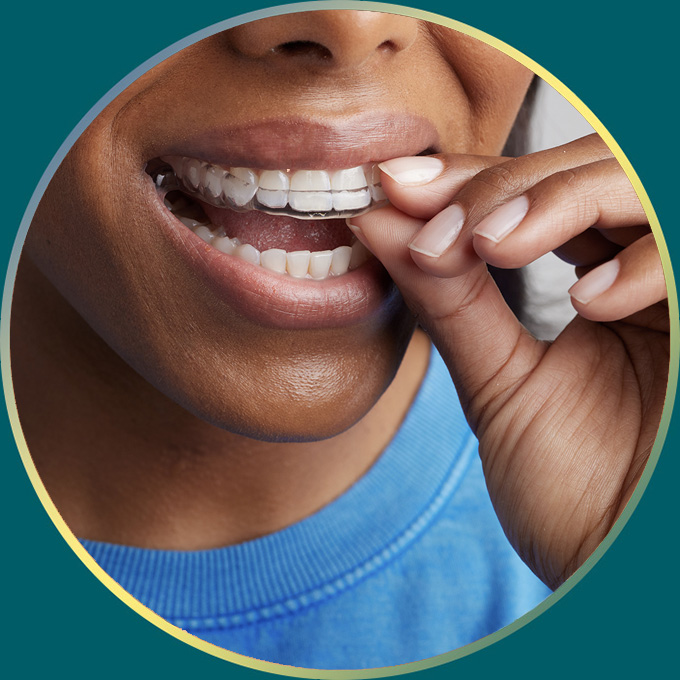
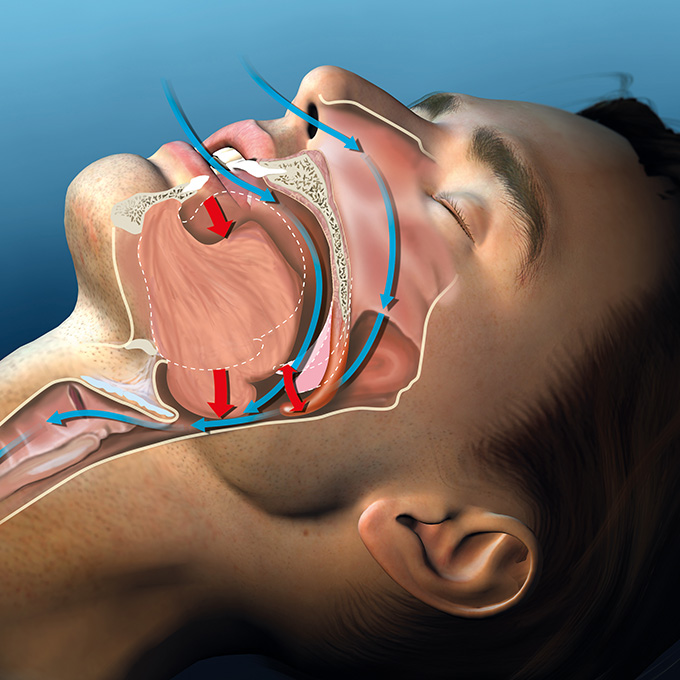
What Is Snoring?
Snoring is a sound created by the vibration of soft tissues in your mouth and throat. When these tissues loosen, it causes the airway to narrow and forces air through the smaller opening. This causes the tissues to flutter, creating sound vibrations in the throat that result in snoring.
What Causes Snoring?
- Congestion
- Being overweight
- Excessive alcohol consumption
- Stress • Enlarged Tonsils
- Sleeping on your back
What Is Sleep Apnea?
Sleep apnea is a disorder that causes your body to stop breathing while you sleep. The lack of oxygen jolts you awake, although you may not remember waking up. The process repeats multiple times, consistently disrupting your sleep cycles and lowering your sleep quality.
There are three types of sleep apnea:
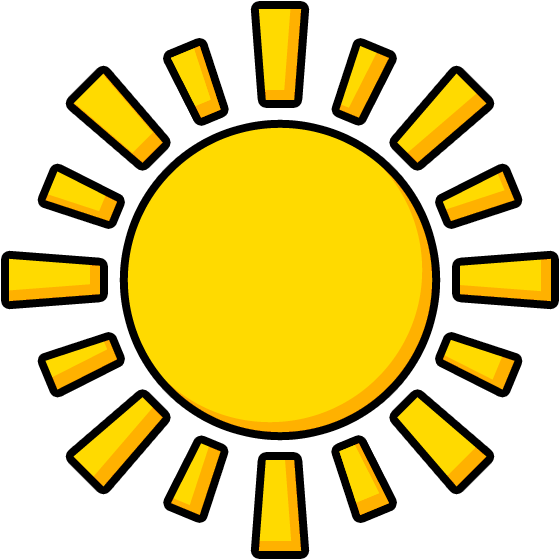
Central sleep apnea (CSA) occurs when the brain fails to send signals to the body to breathe during sleep.

Obstructive sleep apnea (OSA) is the most common form of sleep apnea, affecting over one billion people worldwide. OSA is caused by the collapsing of airways blocking airflow into the lungs. The harder you try to breathe, the tighter the airway seals. This airway obstruction persists until the brain partially wakes you up.

Complex (or mixed) sleep apnea (MSA) is when both obstructive and central sleep apnea occur at once.
Causes of Sleep Apnea
While sleep apnea has similar causes to that of snoring, there are additional reasons you may develop the disorder including:
- Family history of sleep apnea
- Brain tumors
- Jaw misalignment
- High blood pressure
- Diabetes
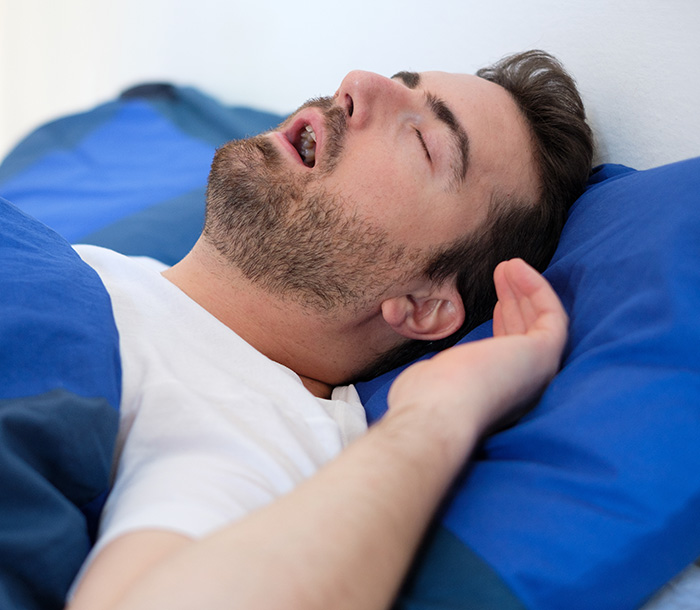
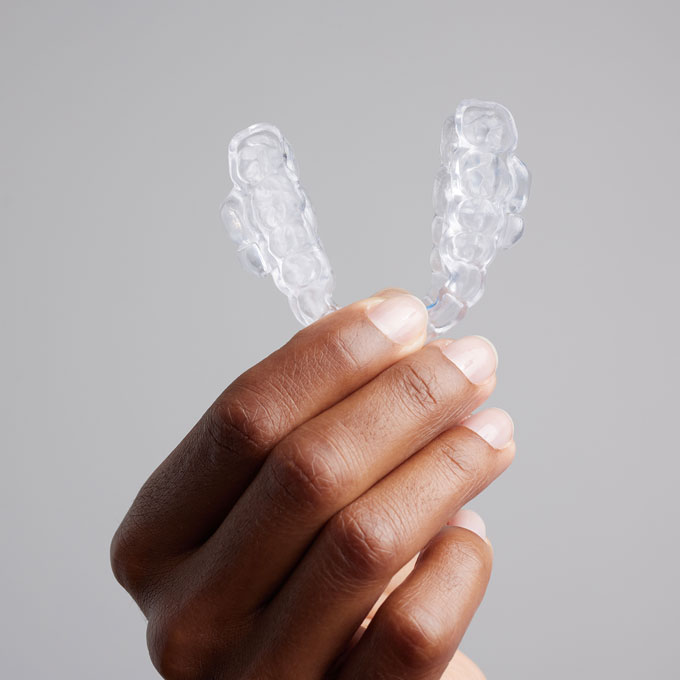
Treatment For Snoring And Sleep Apnea
CPAP
CPAP or continuous positive airway pressure is the first treatment recommended for snoring and sleep apnea. CPAP is a machine that continuously delivers air pressure into your airway through a mask. You wear the mask while you sleep so the air pressure can open your airway, allowing you to breathe easier and helping to alleviate symptoms of snoring and sleep apnea.
While CPAP can be highly effective, many patients find the treatment uncomfortable and disruptive. Patients may end up taking off their mask while they sleep, or simply stop wearing it because of the noise. If you find CPAP to be too disruptive, we offer an alternative.
Oral Appliance Therapy
Oral appliance therapy is a custom-made mouthpiece you wear while you sleep. The mouthpiece repositions your jaw, preventing the soft tissues in your mouth and throat from collapsing into the back of your throat. This helps your airways stay open, so you can breathe properly, preventing symptoms of snoring and sleep apnea. Patients tend to prefer oral appliance therapy because the device is quiet, discreet, and comfortable. Oral appliance therapy can help you sleep in comfortable positions and doesn’t make any noises that may disturb you or your partners. Additionally, your oral appliance will be small enough to easily take anywhere you go, so you never have to miss out on your treatment.
Quiet Nite Laser
The Quiet Nite Laser procedure utilizing the CO2 DEKA laser is a treatment designed to address snoring and sleep apnea. This particular method involves the use of a specialized CO2 laser system, the DEKA laser, to perform a minimally invasive surgery aimed at reducing snoring and potentially alleviating sleep apnea symptoms. The objective of this laser-based procedure is to stiffen or reshape tissues in the upper airway to reduce their tendency to vibrate or collapse, thereby diminishing snoring and potentially improving airflow during sleep for individuals with sleep apnea.
Frequently Asked Questions
If I snore, do I have sleep apnea?
Snoring is a common sign of sleep apnea, but it doesn’t always mean you have that particular sleep disorder. Our dentists help you figure out if your snoring is a symptom of sleep apnea by recommending you to a sleep specialist for a sleep study. During a sleep study, a machine will record your vitals while you sleep and the data will later be analyzed.
Do snoring and sleep apnea go away on their own?
Chronic loud snoring and sleep apnea are conditions that aren’t likely to go away on their own. This is especially true for sleep apnea because it causes a cycle of worsening symptoms like obesity, that worsen the disorder.
The best way to treat loud snoring and sleep apnea is to seek professional treatment. If you’re dealing with loud snoring and/or possible signs of sleep apnea, please contact our office by dialing (605) 373-0245.
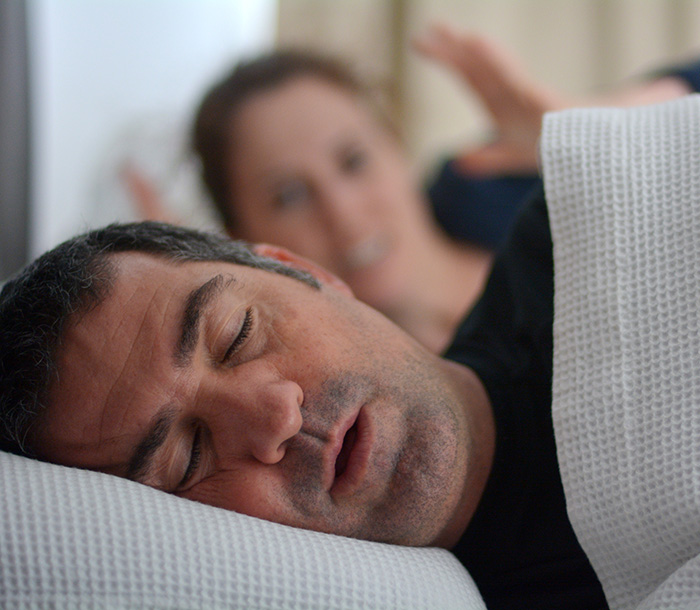
Featured Reviews
We’re proud of the relationships we’ve cultivated with our patients - and even prouder when they are willing to tell others about us!


